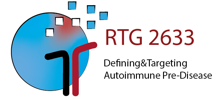Cristian Papara
Site-specific inhibition of C5/ C5a in pemphigoid diseases
Pemphigoid diseases (PDs) are a group of organ-specific, autoimmune diseases, characterized by autoantibodies targeting the hemidesmosomal adhesion proteins of the dermal-epidermal junction (DEJ). The current treatment is based on systemic, unspecific immunosuppression, the latter being associated with significant morbidity and mortality. The role of complement in PDs has already been established. Specifically, its activation at the DEJ in response to autoantibody deposition is a central pathogenic pathway, and the detection of complement deposits at the DEJ is a diagnostic hallmark of PDs. Specifically, C5 and its active split product C5a drive effector cell recruitment and activation in PDs, but their systemic inhibition also strongly compromises host defence and may be associated with severe infections.
To avoid general impairment of immune defences and, instead, more specifically target the pathogenic effect of C5, in this project we aim to develop novel bispecific antibodies designed to specifically target the area of the DEJ as the site of action of both autoantibodies and immune effector cells inflicting tissue injury in PDs, namely in EBA and MMP. We hypothesize that site-specific inhibition of C5/C5a is effective in suppressing the effector phase of PDs. To test this hypothesis, we will: (i) engineer bispecific antibodies composed of DEJ-targeting antibody fragments and inhibitors of murine C5/C5a; (ii) analyze the capacity of these constructs to bind to the DEJ and to inhibit complement fixation ex vivo; (iii) study their pharmacokinetics in vivo; (iv) analyze their efficacy in both antibody transfer- and immunization-induced mouse models of EBA and MMP; (v) potentiate their therapeutic effects by polyclonal targeting and multivalent complement binding.

- People
- Doctoral Candidates
- Merabell Adem
- Katja Adriany
- Farbod Bahreini
- Estelle Bergmann
- Swayanka Biswas
- Jana Buhre
- David De Luca Laredo
- Kaan Ersoy
- Ferdinand Gebauer
- Sen Guo
- Veronika Hartmann
- Michelle Hein
- Luise Janusch
- Maj Jäpel
- Anna Knauer
- Valentin Kneitz
- Maximilian Lahmer
- Wing Yu Lee
- Daniel Mehlberg
- Sahar Mehrabani
- Afsaneh Mehrpouyan
- Sadegh Mousavi
- Milica Novovic
- Justus Ohmes
- Bianca Opelka
- Colin Osterloh
- Cristian Papara
- Tina Rastegar Lari
- Rochi Saurabh
- Alessia Maria Sbaraglia
- Jovan Schanzenbacher
- Mareile Schlotfeldt
- Carolin Schmidt
- Solveig Lea Schmidt
- Leon Schmidt-Jiménez
- Nora Schoell
- Salomini Sinnathurai
- Sarah Stenger
- Chiara Walczyk
- Nele Wellbrock
- Julia Wimmer-Gross
- Natalia Zappe
- Jianrui Zheng
- Luca Zillikens
- Carla Zünkeler
- Principal Investigators
- Associated Scientists
- Administration
- Doctoral Candidates




